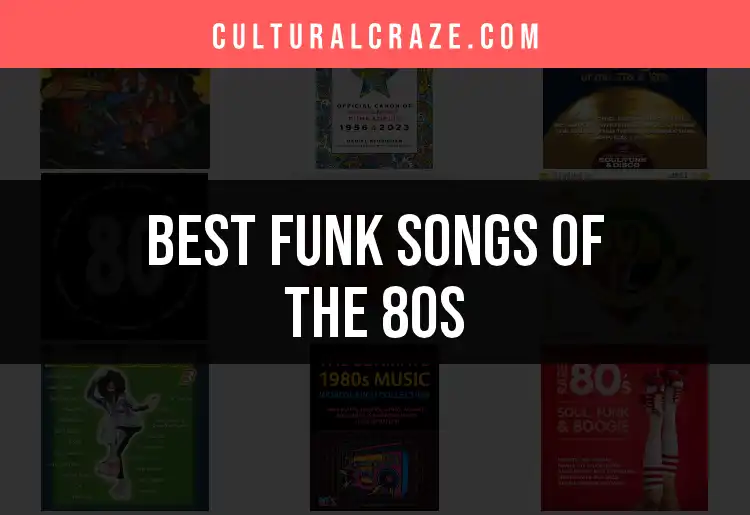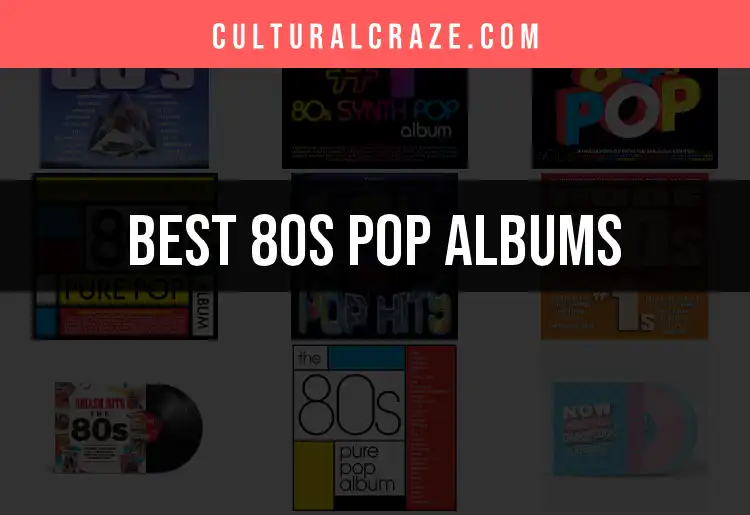Introduction to Music
Music is more than just a collection of sounds organized in time — it’s a universal language that shapes cultures, evokes emotion, and connects people across generations. From ancient chants to digital streaming, music permeates every corner of daily life, capturing the imagination and expressing the pulse of society.
Throughout human history, music has not only mirrored cultural shifts but has also pushed boundaries. It spans an immense scope: from its earliest origins, through the evolution of genres and technology, to its role in defining identities and pop culture. In this comprehensive guide, you’ll explore every facet of music and its indelible impact on the modern world.
Historical Development of Music
Ancient and Classical Music
From the rhythmic beating of drums in early civilizations to the creation of the lyre and flute, music’s origins are rooted in ritual, storytelling, and celebration. Ancient societies, such as Egypt, Greece, and China, developed distinctive musical traditions, often entwined with religious ceremony and royal events.
The Greeks devised musical modes and theorized principles that influenced Western music for centuries. In India, the raga system laid the foundation for complex improvisational traditions.
Medieval and Renaissance Periods
As written notation emerged in medieval Europe, music evolved from oral tradition to documented art. Gregorian chant provided liturgical structure, while secular troubadours spread folk melodies. The Renaissance sparked innovation in harmony, counterpoint, and instrumentation, thanks to visionaries like Josquin des Prez and Claudio Monteverdi.
Baroque, Classical, and Romantic Eras
The Baroque era saw ornate compositions by Johann Sebastian Bach and Antonio Vivaldi, introducing intricate fugues and concertos. The Classical period emphasized clarity and form, with luminaries like Wolfgang Amadeus Mozart and Ludwig van Beethoven. Romantic composers such as Franz Schubert and Pyotr Tchaikovsky broke conventions, weaving rich emotion and national identity into their works.
Twentieth Century and Modern Music
The 1900s heralded a musical revolution. Tolstoy’s phonograph brought records into homes, jazz and blues emerged from Black communities in the United States, and new genres spiraled forth with advancing technology. From the explosion of rock ‘n’ roll in the ’50s, to the birth of hip-hop in the ’70s, to the synth-powered pop and EDM of more recent decades, music’s history is a tapestry of sound, innovation, and social commentary.
For deeper insights on songs that defined a generation, discover the most influential tracks from the Gen X era.
Genres of Music
Music is vast, constantly morphing to reflect cultural, social, and technological change. Here’s a look at its many forms:
Classical
Rooted in the Western canon from the Medieval to Romantic periods, classical music is marked by its complexity, disciplined structure, and orchestral arrangements.
Jazz
Born in the American South, jazz thrives on improvisation and swing rhythms. It encompasses diverse subgenres, from bebop to fusion.
Blues
Originating from African American spirituals and work songs, blues is characterized by its expressive “blue notes” and themes of longing and resilience.
Rock and Roll
A phenomenon of the mid-20th century, rock and roll infused blues, jazz, and country with rebellious energy and amplified sound.
Pop
Pop’s infectious melodies and broad appeal have dominated charts worldwide, adapting to trends in style and production.
Hip-Hop and Rap
Emerging from urban America, hip-hop culture spans rapping, DJing, breakdancing, and graffiti, wielding vast influence on language and fashion.
Electronic Dance Music (EDM)
Built on synthesized beats and basslines, EDM powers dance floors and festivals, evolving with each decade’s technology.
Country
Drawing from folk and blues roots, country music tells stories of love, hardship, and small-town nostalgia.
Folk and Indie
Folk preserves traditions through storytelling, while indie artists carve unique paths outside major labels.
R&B and Soul
With origins in gospel, rhythm and blues, and jazz, R&B and soul are cornerstones of modern vocal music.
Reggae and World Music
Reggae, rooted in Jamaican rhythm and protest, embodies a global movement. World music fuses traditional sounds with contemporary genres.
Experimental and Avant-Garde
Pushing boundaries of form and tonality, experimental music encompasses everything from John Cage’s silence to electronic soundscapes.
To see how specific genres provided the soundtrack for a generation, explore the defining tracks from the Gen X era.
Music Production and Technology
Instruments and Their Evolution
From classical strings and piano to electric guitars and synthesizers, the craft of instrument building continually shapes the soundscape of music. Advances such as the Fender Stratocaster and the Moog synthesizer have redefined what’s possible in composition and performance.
Recording Techniques and Studios
Recording technology has transformed the way music is created and consumed. Early analog studios gave way to multitrack tape, then to digital soundboards and software. Iconic locations like Abbey Road Studios and Sun Records have produced legendary albums.
Digital Audio Workstations (DAWs)
Software such as Ableton Live, Logic Pro, and FL Studio democratizes music production, making it possible for bedroom producers to create professional-quality music.
Sampling and Electronic Production
Sampling, looping, and synthesis have become staples of modern genres, especially in hip-hop and electronic music. These practices allow artists to repurpose older recordings, shape new textures, and innovate beyond traditional instruments.
The Role of Producers
Producers are often the unsung heroes of music, shaping arrangements, guiding artists, and engineering the final sound. Icons like Quincy Jones, Rick Rubin, and Max Martin have left indelible marks as musical visionaries.
Influence of Technology on Music Styles and Distribution
Streaming platforms, social media, and affordable production tools have accelerated genre proliferation, artist discovery, and audience reach. The democratization of music technology blurs lines between professional and amateur, local and global.
For a look at how production values defined ’80s and ’90s hits, check out our guide to songs that shaped Generation X.
Notable Musicians and Composers
Classical Legends
Composers like Ludwig van Beethoven, Wolfgang Amadeus Mozart, and Johann Sebastian Bach laid the groundwork for centuries of Western music, introducing themes and techniques still echoed today.
Pioneers of Jazz and Blues
From Louis Armstrong’s groundbreaking trumpet solos to B.B. King’s heartfelt guitar licks, jazz and blues legends have fueled countless musical revolutions.
Iconic Rock and Pop Artists
The Beatles transformed pop music, David Bowie blurred genre lines, and Michael Jackson became the “King of Pop.” Their influence still resonates in contemporary music and culture.
Hip-Hop Innovators
Visionaries such as Tupac Shakur and Notorious B.I.G. channeled personal experiences into poetic lyrics, reshaping the landscape of American music.
Electronic Music Pioneers
Acts like Kraftwerk and Daft Punk expanded the boundaries of rhythm and melody through technology, influencing everything from pop to film scores.
Contemporary Influencers
Artists like Beyoncé, Taylor Swift, and Billie Eilish use music not only as self-expression but as platforms for social commentary, redefining stardom for the streaming age.
Explore the artists who topped the charts for Generation X for even more legends who defined an era.
The Cultural Impact of Music
Music as a Reflection of Society and History
Throughout history, music has echoed political change, social strife, and jubilation. War songs, protest anthems, and love ballads have all shaped collective memory.
Music and Identity
Music is a powerful engine of individual and collective identity. Genres like hip-hop and punk have fueled movements around race, gender, sexuality, and rebellion. LGBTQ+ anthems, feminist pop, and Black protest songs continue to push conversations forward.
Music and Fashion Trends
Fashion statements and musical subcultures go hand-in-hand, from the leather jackets of rock ‘n’ roll to the neon flair of the ’80s and the grunge flannel of the ’90s.
The Role of Music Videos in Pop Culture
Music videos—especially in the MTV era—redefined how artists present themselves. Michael Jackson’s “Thriller” and Madonna’s boundary-pushing visuals cemented music’s place in pop culture.
Music Festivals and Live Events
Festivals like Woodstock, Coachella, and Glastonbury are more than concerts; they are cultural phenomena that unite massive audiences in celebration of sound.
Music and Media
Music has thrived through radio, television, and now social media and streaming, creating ever-more accessible and diverse experiences for fans.
Influence of Celebrity in the Music Scene
Musicians often become cultural icons, influencing politics, philanthropy, and global media—sometimes eclipsing their status as mere performers.
To see how certain eras left a cultural mark, don’t miss our breakdown of songs that defined Generation X.
Genres and Eras Focused on Generation X
Overview of Generation X
Born roughly between 1965 and 1980, Generation X grew up through shifting political and economic times. Their music preferences were shaped by rapid technological advances, the rise of independent media, and a hunger for authenticity.
Key Musical Styles During the Gen X Era
Alternative Rock and Grunge
Bands like Nirvana, Pearl Jam, and R.E.M. brought raw energy and angst to the mainstream, capturing the voice of a generation disillusioned with consumerism and conformity.
Hip-Hop and Rap’s Rise
Artists such as Run-D.M.C., Public Enemy, and LL Cool J spearheaded hip-hop’s expansion into a global force for self-expression and social activism.
Pop and New Wave Movements
Pop superstars Madonna, Prince, and Michael Jackson, alongside new wave icons like Duran Duran and The Cure, shaped the airwaves with fresh production and style.
Electronic and Industrial Sounds
Synthesizers and drum machines fueled innovative groups like Depeche Mode and Nine Inch Nails, making electronic and industrial genres a Gen X trademark.
Notable Gen X Artists and Bands
For a curated look at the most iconic tracks and artists of this era, visit our collection of the best Generation X songs.
Significant Albums and Cultural Moments of the Gen X Period
Seminal albums like Nirvana’s Nevermind, Madonna’s Like a Virgin, and Dr. Dre’s The Chronic not only topped charts but also set benchmarks for the decades that followed.
Influence of Gen X Music on Later Generations
The music of Generation X continues to inspire today’s artists across genres, echoing in the work of everyone from Billie Eilish to The Weeknd. Explore more in our guide to era-defining Generation X anthems.
Music Charts and Awards
Major Music Charts
Billboard, the UK Singles Chart, and other rankings have long measured commercial success, influencing radio play and record deals.
Iconic Award Shows
The Grammys, MTV Video Music Awards, and American Music Awards celebrate excellence, stage legendary performances, and set trends in music, style, and performance.
Records and Milestones in Music History
From The Beatles’ chart dominance to Adele’s record-breaking album runs, tracking milestones unveils patterns in musical taste and industry evolution.
Trends in Award-Winning Music
Winning tracks often reflect broader cultural moments—such as folk-rock at Woodstock or trap’s surge in the 2010s. For a deeper dive into award-winning Gen X songs, visit our summary of hits from the Gen X generation.
Music Licensing, Copyright, and Business
How Music Rights and Royalties Work
Copyright protects creators’ rights, while royalties ensure artists and songwriters receive payment for performances and usage.
Impact of Copyright Laws on Artists
These laws both empower and challenge musicians. While providing protection, they can also complicate sampling, covers, and mashups, especially in digital spaces.
Music Streaming Business Model
Streaming platforms like Spotify and Apple Music have revolutionized access, compensation, and discovery, though debates over fair pay persist.
The Role of Record Labels and Independent Artists
Major labels offer resources and reach, but independent artists now thrive via self-releases, crowdfunding, and direct-to-fan platforms.
Monetizing Music in the Digital Age
Income streams diversify through sync licensing, merchandise, virtual appearances, and more, offering artists greater independence and complexity.
Our breakdown of business-defining Gen X hits shows how earlier eras navigated changing industry landscapes.
Future of Music
Emerging Genres and Innovators
Genres like hyperpop, lo-fi beats, and global hybrids such as reggaeton continue to push music forward. Visionaries experiment with AI-generated songwriting and non-traditional sounds.
Impact of Artificial Intelligence and Technology
AI composes music, personalizes playlists, and even generates vocals. Blockchain promises new models for rights and compensation.
Shift Toward Personalized and Immersive Experiences
AR and VR open doors to immersive concerts and interactive music videos, transforming the fan experience.
Social Media and Music Discovery
Platforms such as TikTok launch viral hits overnight, accelerating the feedback loop between audience and artist.
Challenges and Opportunities in the Music Industry
As distribution and creation tools proliferate, issues of copyright, accessibility, and meaningful compensation grow ever more complex.
Discover how technology shapes nostalgia by looking back at Gen X’s most influential tracks.
Special Focus: Best Generation X Songs
Introduction to Gen X Music Timeline
The Generation X era produced a seismic shift in sound and attitude. From punk’s DIY ethos to the digital revolution in pop, Gen X’s legacy endures in today’s charts.
Criteria for the Best Gen X Songs
To identify the most influential Gen X songs, we consider chart performance, critical acclaim, cultural resonance, and longevity.
List of Top Gen X Songs
Explore our comprehensive list of Generation X’s essential tracks, broken down by:
- Genre, highlighting how grunge, hip-hop, and new wave reigned
- Chart performance and lasting popularity
- Songs with significant cultural and social impact
Analyzing the Influence and Significance of These Songs
Songs from the Gen X era both mirrored and shaped their turbulent times, often embracing rebellion, skepticism, and experimentation.
How These Songs Shaped Pop Culture and Future Music Trends
Gen X anthems fueled everything from fashion trends to film soundtracks, leaving a creative blueprint for artists of every subsequent generation.
Cross-Cultural and Global Perspectives on Music
Music in Different Regions
Every culture claims its own musical heritage: Bollywood in India, Afrobeat in Nigeria, J-pop in Japan, and beyond. Regional sounds continuously influence the international landscape.
Fusion Genres and Global Collaborations
Today’s music thrives on cross-cultural innovation — think reggaeton’s global rise or Korean pop’s worldwide fandom.
Influence of World Music on Western Styles
Artists from Paul Simon to Beyoncé draw on world music traditions, introducing global audiences to new rhythms, instruments, and concepts — a dynamic explored further in our Gen X song roundup.
Music Education and Appreciation
Learning Instruments and Music Theory
A foundation in music theory and instrumental skill builds appreciation, discipline, and emotional intelligence.
The Importance of Music in Schools
Music education boosts cognitive skills, teamwork, and creativity. Schools serve as incubators for budding talent, regardless of background.
Promoting Music Appreciation and Critical Listening
Understanding diverse genres, song structures, and production techniques cultivates active, thoughtful listening and a deeper bond with music — as highlighted by the timeless appeal of top-rated Gen X hits.
Music and Technology in Pop Culture
Social Media Platforms and Viral Music Trends
Instagram Reels, TikTok dances, and YouTube challenges propel songs to chart-topping status in days, resetting the pace of music discovery.
Music Apps and Interactive Experiences
From Spotify Blends to songwriting apps, interactive tools foster a hands-on relationship with music, making every listener a potential creator.
Virtual Concerts and Live Streaming
Artists now perform in virtual arenas, gaming worlds, and across continents via livestreams — a shift accelerated by global events.
Future Tech Developments in Music Creation and Consumption
The next wave may see more AI integration, blockchain-based royalties, and immersive media that blur lines between artist and audience. For a glimpse of how nostalgia-meets-innovation, reflect on how Gen X favorites continue to inspire.
















